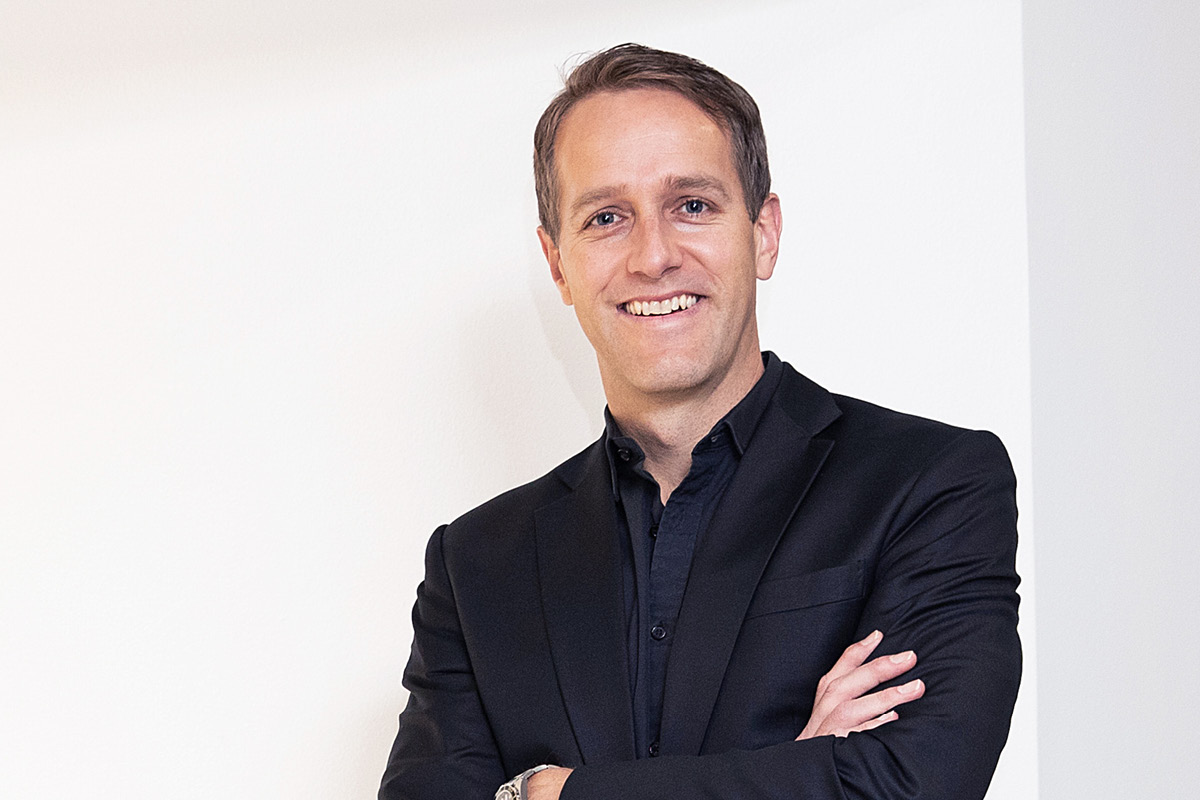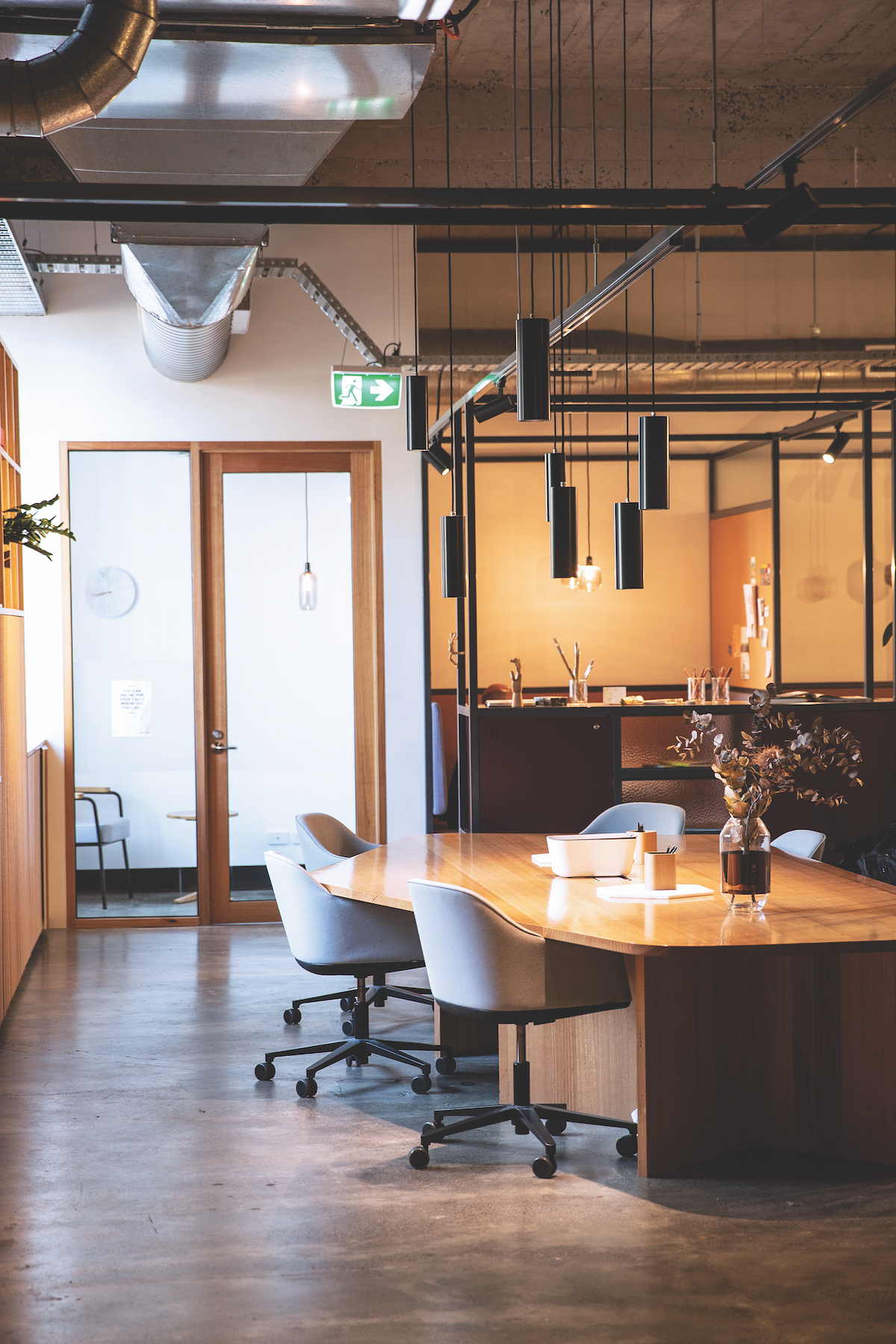After a lengthy career spent in the travel and logistics industries, Damien Sheehan was presented an opportunity to become Country Head of flexible workspace company IWG in Australia and New Zealand. It was a chance for him to undertake a new challenge and capitalise on the workspace revolution sweeping the globe.
“I’m a huge believer in the sharing economy,” Damien tells The CEO Magazine. “And I always get a kick out of working as part of a global team; offering network solutions in the service industry, where people truly are the difference. It has combined my interest and passion for travel, people and, ultimately, success.”

Respondents of the IWG study highlight the business benefits of flexible workspaces:
89%
Grow our business
87%
Stay competitive
83%
Maximise our profits
82%
Create a presence in new markets
80%
Attract and retain top talent
73%
Mitigate risk
67%
Manage volatile markets
Although Damien has only been in the position since late 2017, he already sees the massive potential of flexible workspaces. “If you look at Australia as a whole, only 2.5–3.5% of available commercial workspace is used for flexible co-working and serviced offices,” he says. “The predictions are that this could be as high as 25–30% by 2030.
“I think it’s going to be an exciting ride. Not only for us as a business, but for corporates and their employees as they consider their workplace strategy going forward.”
Regus is a subsidiary of global flexible workspace company International Workplace Group (IWG) and offers office spaces, virtual spaces, meeting rooms and co-working spaces. It is one of several flexible workspace brands IWG holds, along with Spaces, No18, Openoffice and Signature.
Damien notes that there is a growing interest for Regus’s workspaces, particularly at the enterprise level and with large corporate companies. “Australia and New Zealand are actually a bit behind Europe and the US in terms of flexible workspaces, but this is now changing,” he says. “We’ve just been approached in the past few months by a couple of big corporates wanting to speak with us about their workplace strategy.
“It’s an interesting time. While most of the big corporates have core conventional spaces, their business cycles often flex up and down. To be able to have a workplace strategy that can flex with that is a topic that’s getting more on the table.”
In June 2018 Spaces Richmond was awarded the best co-working space at the 2018 Qantas Business Travel Awards. It’s the first time the awards have recognised co-working spaces, and Spaces was one of five finalists in this category. On behalf of both the local and global team behind the Spaces brand, Damien was extremely proud to be announced as the winner.
“We’re at the tipping point,” he continues. “Typically, it’s been small- and medium-sized enterprises with a sprinkling of larger corporates that have been the backbone of our business but we predict that that’s going to change in the coming years.”
Why flexible workspaces?
There are several reasons for the increase in individuals and businesses seeking flexible workspaces. One of the biggest motives is improving personal productivity. In 2018, IWG conducted a survey of more than 18,000 professionals in 96 countries.
82% of respondents found they were more effective when having flexible working options. A further 88% signalled that flexible workplaces reduced their commuting time, which was a small yet significant reason why Damien himself took on the role at IWG. “I have the flexibility to work at any one of our 80 centres around Australia,” he comments.

Another major factor is that flexible workspaces can facilitate a greater work–life balance. “I know it’s a cliché that gets thrown around a lot, but I see it a lot now and genuinely understand it,” Damien continues. “When I talk to our thousands of customers as I travel around, I ask them, ‘Why have you partnered with IWG?’ They may not overtly say, ‘for work–life balance’. Typically, many say, ‘It’s close to home’; ‘It’s near the transport line’; or ‘My child’s day care centre is nearby’.”
And it’s not just the employees who benefit either. In the IWG survey, 83% of respondents noted that flexible working helped their businesses to maximise profits. Moreover, 87% believed it would help their business stay competitive.
“When you dig deeper, employees are not just sitting in their own office listening to their colleagues talk about what they think is going on out there in the market,” Damien explains. “They’re involved in a community of other businesses and get exposure every day to many different industries, people and cultures, as well as to strategies being discussed in the corridors, in the lunch room and in the breakout areas. It’s quite motivating.”
This growing adoption of flexible workspaces means Regus has to ensure it gives the very best service to its clients. “People want workspaces but, more importantly, communities, to match their needs,” Damien says. “It’s more than just offering an office with a phone, a coffee machine and videoconferencing facilities. People want to be engaged; they want to be part of a community. And it’s up to us to create that experience.
“There are many boutique operators popping up in every market so this competition is sharpening our focus. It’s making sure that we start to deliver more than just an office with a desk, a chair and a nice view. We need to offer reliable and fast wi-fi, well-equipped rooms and facilities, guaranteed safety, and the opportunity to network and share knowledge.”
“People want workspaces but, more importantly, communities, to match their needs.”
As part of providing a great experience, the IWG’s Spaces brand offers Meditation Mondays to its community of flexible workers in Surry Hills, Sydney, as well as a number of business and networking events for its Regus clients to engage in at both a professional and social level.
What makes a good leader?
If there is one characteristic Damien identifies a good leader should have, it is that they should know their employees. “Being at the pointy end of the service industry, you need to have a great service quality which, ultimately, leads to a healthy and profitable business,” he says.
“That is on the basis that you do have the right people in the right seats. If you truly show you appreciate everything they do, and you can articulate how they make a difference every day to the retention of your customers, and that you have growing net promoter scores – the by-product of that is a healthy business.”
Employee satisfaction
At the end of the day, Damien says flexible workspaces lead to greater employee satisfaction. “Employee satisfaction is critical for the success of businesses,” Damien says. “Having engaged and motivated employees who take care of their customers is critical, and a convenient and great workplace is a main ingredient in that.
“Having engaged and motivated employees who take care of their customers is critical, and a convenient and great workplace is a main ingredient in that.”
“Annual bonuses for executive teams are being increasingly linked to annual employee opinion surveys, measuring active leadership, employee engagement, and so on. So if employers can offer their staff flexibility in where they work – reducing commuting times, creating a better work–life balance, inspiring them to be around other like-minded individuals – that bodes well for a higher score on an employee opinion survey. And, therefore, a higher chance of executive bonuses being paid. So, I think it’s an interesting dynamic that’s part of this overall revolution.”


